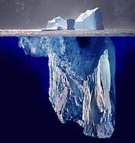Wikisource
online library that collects open-content source material
Wikisource is an online digital library of free-content textual sources on a wiki, operated by the Wikimedia Foundation. Wikisource is the name of the project as a whole and the name for each instance of that project (each instance usually representing a different language); multiple Wikisources make up the overall project of Wikisource. The project's aim is to host all forms of free text, in many languages, and translations. Originally conceived as an archive to store useful or important historical texts, it has expanded to become a general-content library. The project officially began in November 24, 2003 under the name Project Sourceberg, a play on the Project Gutenberg online project.

Quotes
edit- It would be to Project Gutenberg what Wikipedia is to Nupedia.
- The Cunctator, "Primary sources Pedia, or Project Sourceberg", Wikipedia, (2001-10-16).
- [W]e don't want to try to duplicate Project Gutenberg's efforts; rather, we want to complement them. Perhaps Project Sourceberg can mainly work as an interface for easily linking from Wikipedia to a Project Gutenberg file, and as an interface for people to easily submit new work to PG.
- The Cunctator, "Primary sources Pedia, or Project Sourceberg", Wikipedia, (2001-10-16).
- A few times a week, Alastair Haines, a grad student at the Presbyterian Theological Centre in Sydney, sits down with a Greek version of the New Testament and translates a bit of Paul's first letter to the Corinthians. Haines doesn't speak Greek, but he can read it. When he's done, he loads his work onto a Wikipedia page as part of the Wiki Bible Project, a take-all-comers effort launched in January to create "an original, open content translation of the Bible's source texts," which by most counts includes about 30,000 manuscripts. Along with Haines, who admits to signing up for duty as a way to put off finishing his dissertation, 21 others have answered Wikipedia's call to "claim a chapter!" The eclectic group includes a liberal Christian living in the United Arab Emirates and a Methodist financial counselor in Texas. Some claim to be formally trained in Biblical Hebrew and classical Greek; others, such as user John Kloosterman, admit to being "without qualifications of any kind." The project will take a few years to complete and require constant refinement, says John Vandenberg, one of project's main administrators. But "that is part of the beauty," he writes. "It's a laissez-faire translation."
But Biblical scholars see the potential for an inaccurate, bias-filled mess. "Democratization isn't necessarily good for scholarship," says Bart Ehrman, a professor of religious studies at the University of North Carolina at Chapel Hill, who worked on the most recent translation of the New Revised Standard Version in 1988. "Those were the best Greek and Hebrew scholars in the country, and it took them 20 years."- Matthew Phillips, "God's Word, According to Wikipedia", Newsweek, (June 14, 2008).
- The hard question, I guess, is why we are reinventing the wheel, when Project Gutenberg already exists? We'd want to complement Project Gutenberg--how, exactly?
- Larry Sanger, Wikipedia commentary/Project Sourceberg - Wikipedia "Primary sources Pedia, or Project Sourceberg", Wikipedia, (2001-10-17).
- [L]ike Larry, I'm interested that we think it over to see what we can add to Project Gutenberg. It seems unlikely that primary sources should in general be editable by anyone -- I mean, Shakespeare is Shakespeare, unlike our commentary on his work, which is whatever we want it to be.
- Jimmy Wales, Wikipedia commentary/Project Sourceberg - Wikipedia "Primary sources Pedia, or Project Sourceberg", Wikipedia, (2001-10-17). [citation needed]
See also
editExternal links
edit- Encyclopedic article on Wikisource on Wikipedia
- Media related to Wikisource on Wikimedia Commons
- Works related to Wikisource on Wikisource